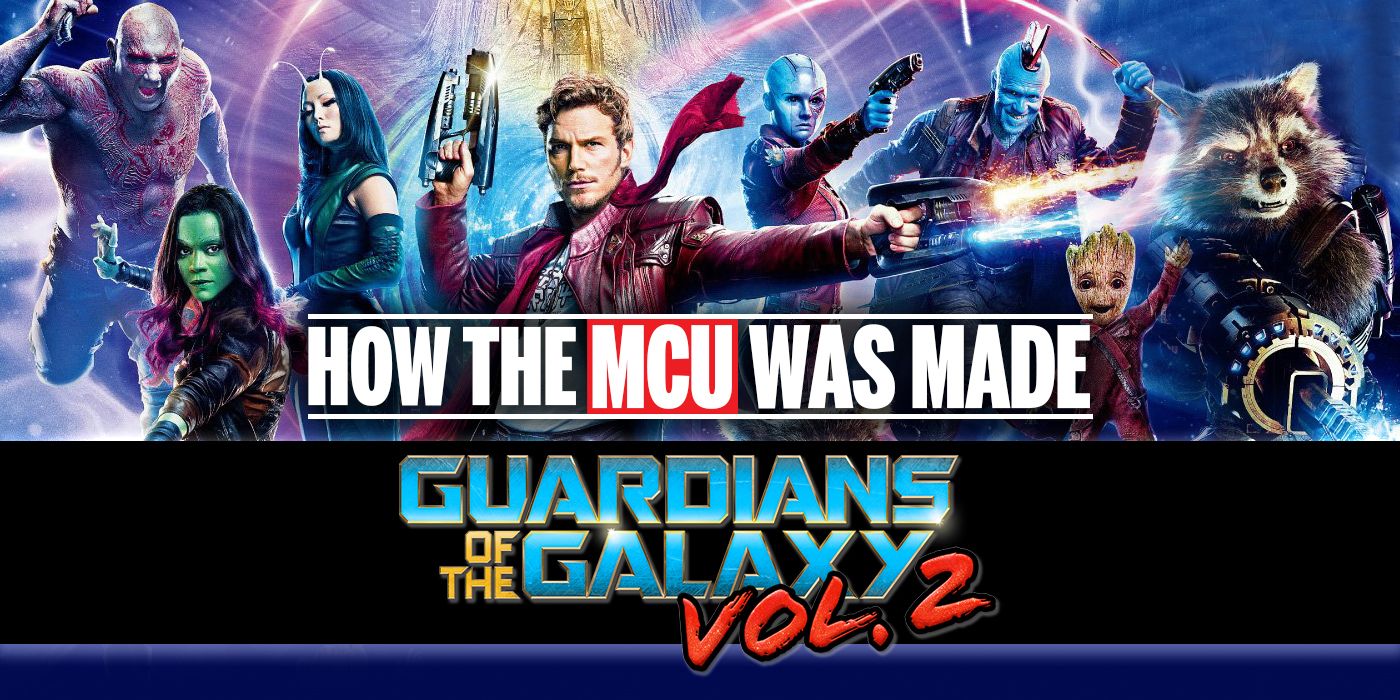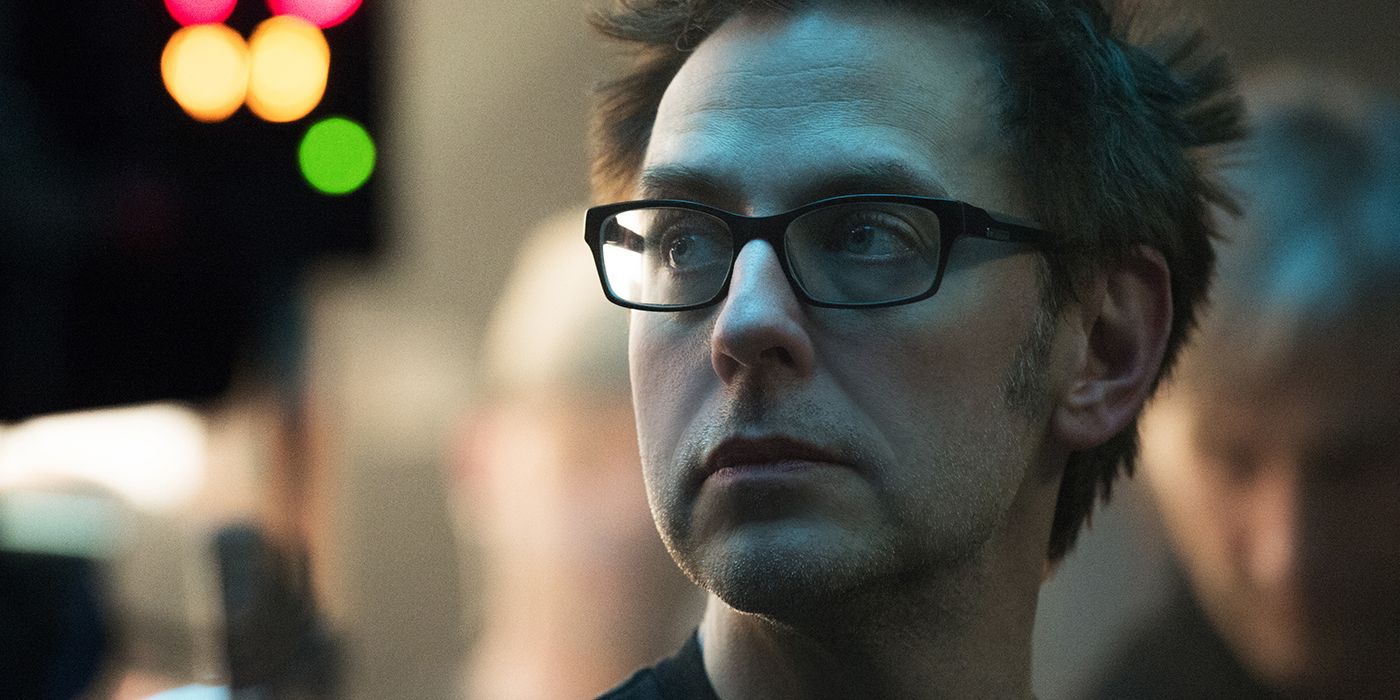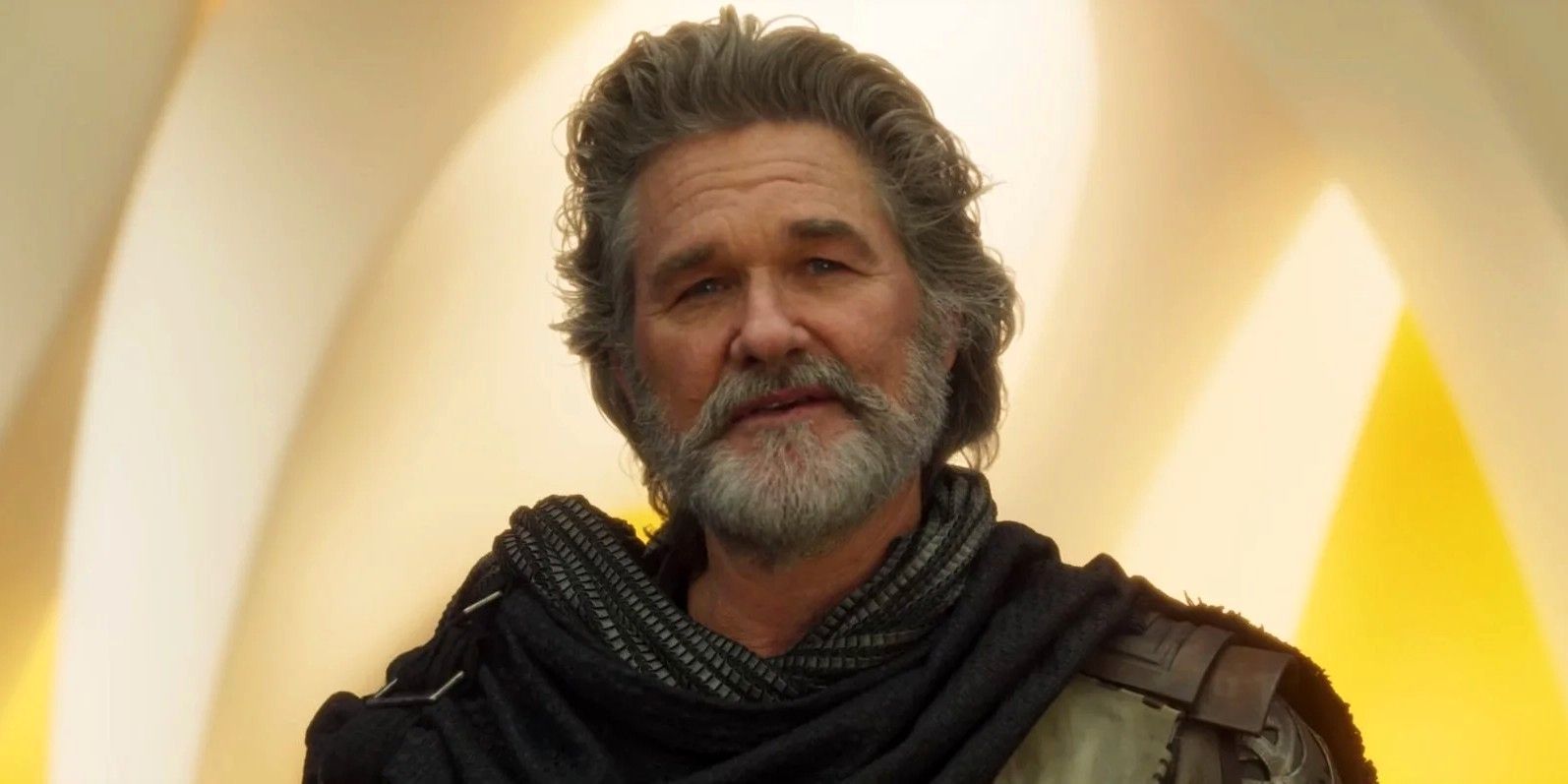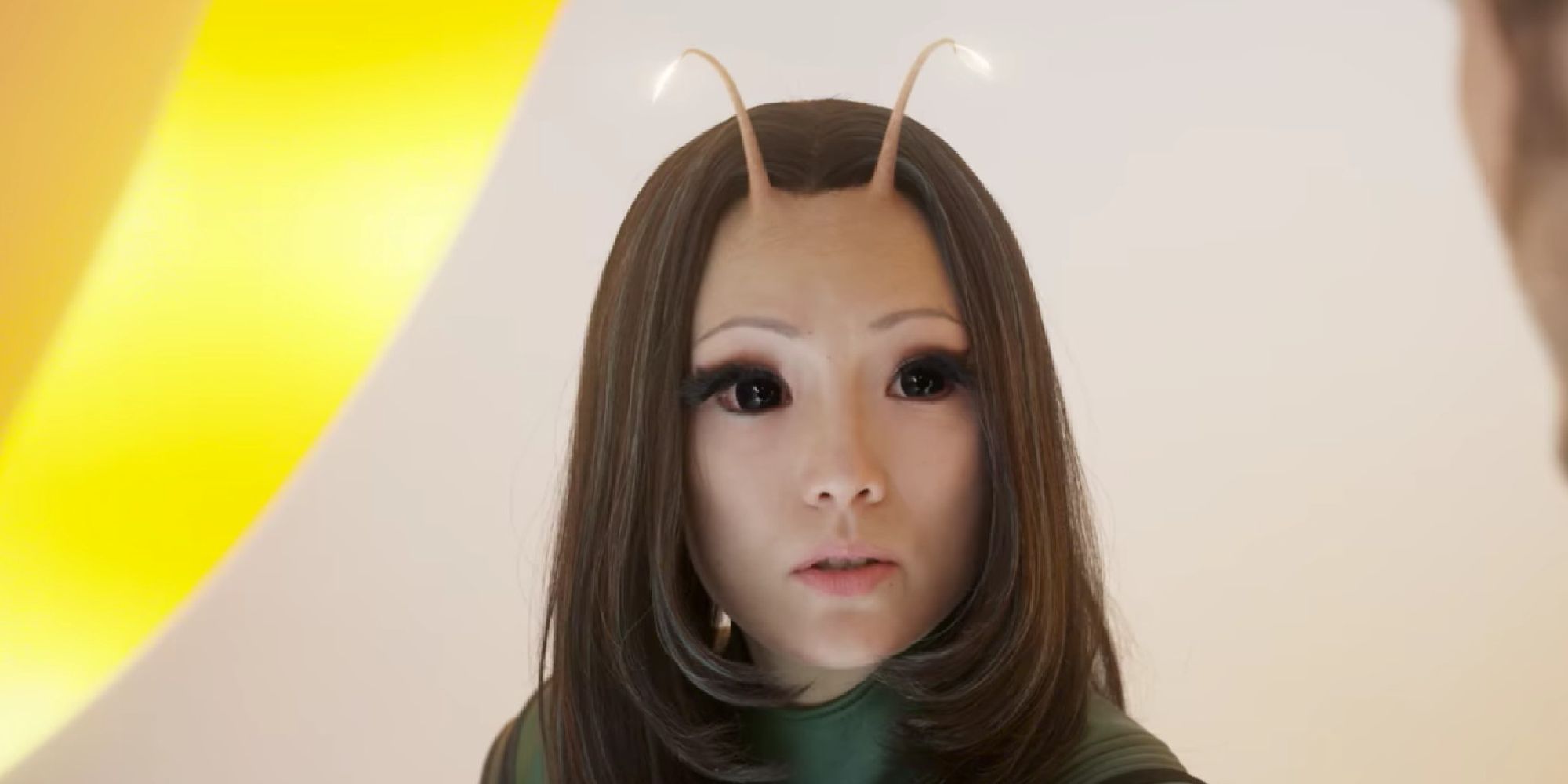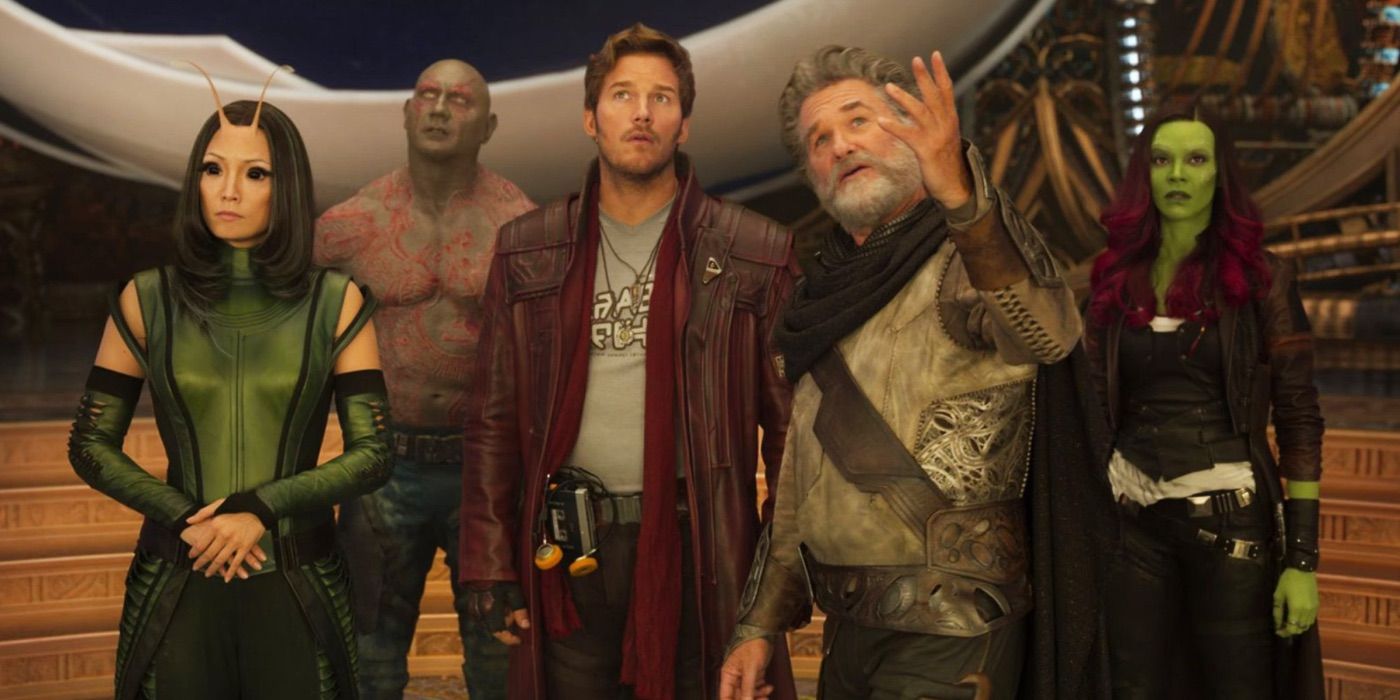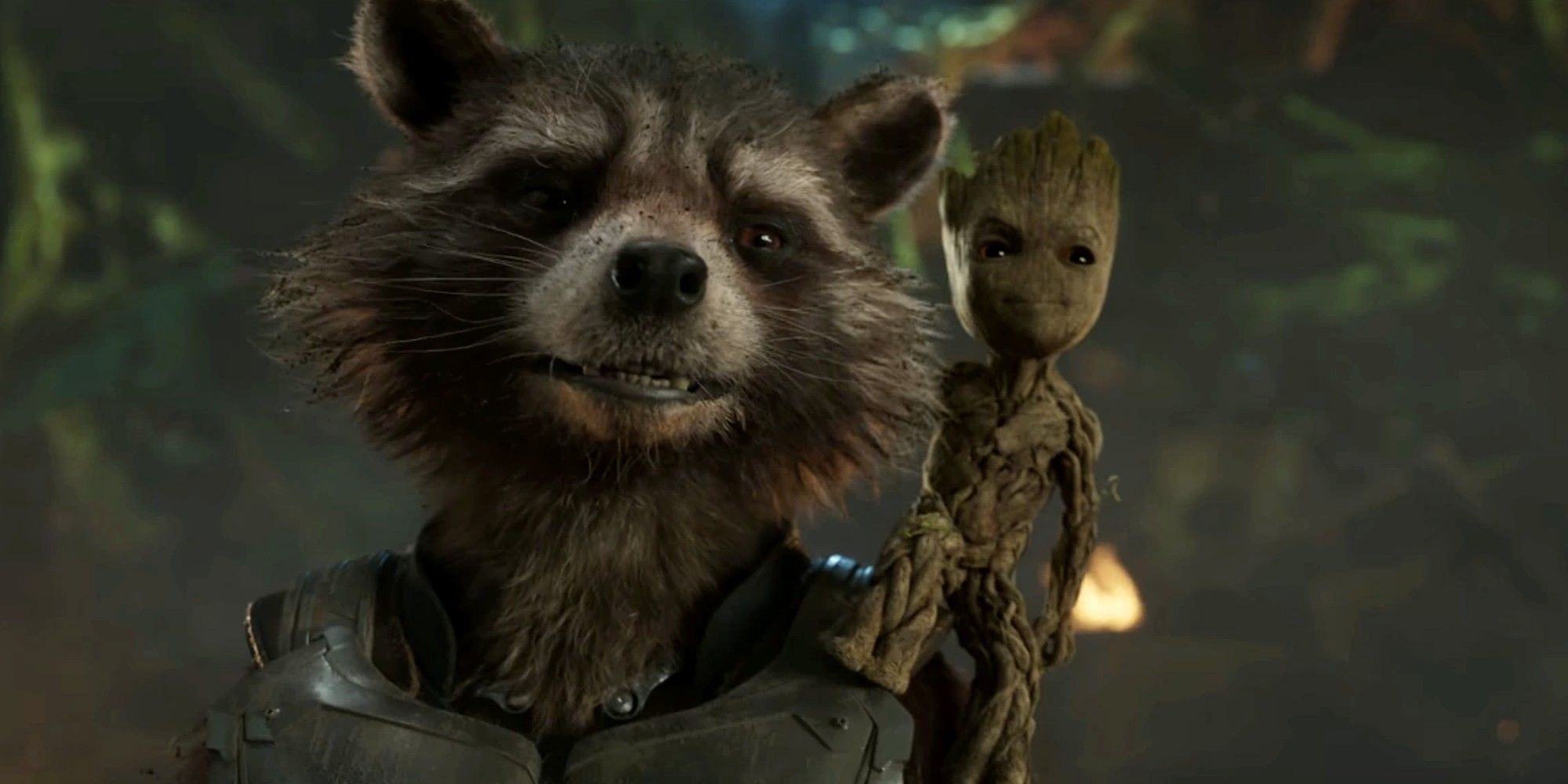“How the MCU Was Made” is a series of deep-dive articles that delve into the ins and outs of the development history, production, and release of all the Marvel Studios movies.
When we look back on the Marvel Cinematic Universe decades from now, there’s a strong chance that Guardians of the Galaxy that emerges as one of the most influential films of the entire franchise. James Gunn’s space-set sci-fi tale combined heart, humor, and found family to tell a genuinely touching story. One in which you conjure genuine empathy for a sentient tree. But even at the time of its release, Guardians of the Galaxy was hailed as something of a revelation, and Gunn’s idiosyncratic storytelling was certainly influential on the MCU movies that followed. So how, then, does one create a worthwhile and compelling sequel to Guardians of the Galaxy without simply rehashing well-worn territory? By getting even more intimate and more personal in what really amounts to a $200 million hangout movie. This is the story of how Guardians of the Galaxy Vol. 2 was made.
James Gunn's First Sequel
As was covered in the Guardians of the Galaxy installment of How the MCU Was Made, the first Guardians film didn’t originate with James Gunn. Instead, Gunn shared screenplay credit with Nicole Perlman, who developed and wrote the first version of the film. So when it came time to make Guardians of the Galaxy Vol. 2, Gunn was free to create the sequel himself from the ground up.
The release date for Guardians of the Galaxy Vol. 2 was announced even before the first Guardians hit theaters, with Disney touting a July 2017 release date way back in July 2014 (though the film would later be moved up to May 2017). Within a month, and in the wake of Guardians of the Galaxy’s opening weekend, Gunn was already writing the sequel.
The filmmaker repeatedly maintained that Marvel gave him a lot of freedom in crafting the story, touting their fruitful relationship:
"We have a really great relationship where they let me go and do my thing, and I truly listen to their notes and ideas. I've never been told to put in any character or plot element at all. I can't tell you the amount of times I've read stuff on the Internet from people who think they understand how Marvel works, when they don't at all. When they trust you - and I think I've earned their trust over the past few years - they give you a wide berth. I truly love them and love working with them. Like a good marriage, we just fit."
As Gunn began working out the major beats of Guardians of the Galaxy 2, he intended to include fan-favorite character Adam Warlock. However, the character never made it to the script phase:
“I love Adam Warlock. He’s one of my favorite characters. In all truth, I wrote an early treatment where I had Adam Warlock as a part… He was a big part of the screenplay and I realized it was one character too many. And I adored the character. I adored what we had done with him. I think we did something really creative and unique with Adam Warlock. But it was one character too many and I didn’t want to lose Mantis and Mantis was more organically part of the movie anyway. So I decided to save him for later.”
Aside from Warlock, however, Gunn says the overall story of Guardians 2 didn’t change much from the initial 70-page treatment to the movie they ended up shooting. Mantis, as mentioned previously, was a new major character, and the notion of Peter Quill’s (Chris Pratt) father was the central plot point:
"I think one of the things I impressed upon people early on is the identity of Quill’s father is not the big stunner in this movie. I’m not leading it all to Darth Vader being Luke’s father in the third act reveal. This is really about the relationship between [Star-Lord] and his father, who happens to be a living planet, and his other father, Yondu, who is an abusive jerk. It’s about the dysfunctional family triad that those three characters have. That’s the center of the movie.”
Adding Mantis and Ego to the World of Guardians
Casting was well underway in Fall 2015, after Gunn announced in June that he had completed the first draft of the screenplay. Pom Klementieff landed the coveted role of Mantis, but Gunn and Marvel wanted a big-name actor to play Ego. They first offered the role to Matthew McConaughey, who was fresh off an Oscar win and Christopher Nolan’s Interstellar at the time. However, McConaughey turned Guardians of the Galaxy 2 down in favor of playing the villain in The Dark Tower. He explained why:
“I like Guardians of the Galaxy, but what I saw was ‘It’s successful, and now we’ve got room to make a colorful part for another big-name actor.’ I’d feel like an amendment. The Dark Tower script was well written, I like the director [Nikolaj Arcel] and his take on it, and I can be the creator, the author of the Man in Black—a.k.a. the Devil—in my version of this Stephen King novel. We’ve done the first one. It’s a fantastic thriller that takes place in another realm, an alternate universe, but it’s very much grounded. For instance, the gunslinger’s weapon isn’t a lightsaber or something; it’s a pistol. I enjoyed approaching my character as if I were the Devil having a good time, getting turned on by exposing human hypocrisies wherever he finds them.”
Unfortunately, we all know how that turned out. Fortunately for us, Gunn and Marvel then nabbed Kurt Russell to play Ego the Living Planet, aka Star-Lord’s father. Now spoiler alert for those who haven’t seen the film, but Ego turns out to be a very bad guy who not only wants to control the universe, but who also killed Peter’s mom.
Gunn revealed that he settled upon Ego as Peter’s dad while he was making the first Guardians:
“I knew before the movie who his father was, like I knew that he was a Celestial, he was a being of great power, made of light, who created himself. So I knew what the origin of Ego was; I knew who he was. I don’t think I decided upon Ego the Living Planet until around the end of the first movie. I definitely didn’t tell Kevin [Feige] until after we opened up and made a lot at the box office opening weekend.”
But before he settled upon Ego specifically, Gunn knew Peter’s dad was a bad dude and that he was the one who killed Meredith Quill:
“I knew that from before I started the first movie. I knew that when [Meredith] was talking about a being of pure light in the first movie—in the first scene of the first movie—that that was the man who killed her. That was always a part of what the first story was, in my head.”
The story of Ego and his relationship to Peter developed as Gunn discussed the sequel with Chris Pratt, and they ended up putting a lot of themselves into the thematic thrust of Guardians of the Galaxy 2:
“Quite honestly, I had discussions, Chris Pratt and I, early on about what we were doing with the second movie. I think that, in the wake of the first movie, both of us experienced this tremendous lift in our egos where we went from … he was the chubby, supporting actor on a sitcom and I was a guy directing cult, low-budget movies and suddenly, after that, I could direct any movie I wanted and he could star in any movie he wanted … I really think that the movie, in a lot of ways, is about us and our relationship to that ego, and not being destroyed by it, and allowing ourselves to still be ourselves and stay who we were before we started making the movie. That’s really, to me, the personal story of Vol. 2. … For me, it was just about his ego taking over everything. It was about “Brandy”, that song that they discuss and how Ego sees that song.”
But Guardians of the Galaxy Vol. 2 also had another major surprise teed up for the ending of the film: the original Guardians of the Galaxy featuring A-list cameos. Sylvester Stallone played the Ravager Stakar and was flanked by Charlie 27 (Ving Rhames), Aleta Ogord (Michelle Yeoh), Martinex (Michael Rosenbaum), and Mainframe (voiced by Miley Cyrus). Gunn confirmed that the idea was both to further the mythology of the Yondu character and to tee up a possible future for the MCU:
“With all of the post-credit scenes in this movie, they’re all funny and fun, and most of them are things that we hope to see continuing on in the MCU, whether that’s in supporting roles in future movies, or whatever. I think it would be great to see those things and those characters show up.”
Guardians of the Galaxy Vol. 2 Creates One of Marvel's Biggest Series
Guardians of the Galaxy Vol. 2 hit theaters on May 5, 2017, to a stunning $146.5 million opening weekend, topping out at $389 million domestic and $863.5 million worldwide. While both of those numbers aren’t massively larger than the totals for the first Guardians ($333 million and $773 million, respectively), they’re significant enough improvements.
Indeed, the structure and overall tone of Guardians 2 took many by surprise. Most critics deemed the film an enjoyable enough step-down from the first film, and the hangout nature of the narrative threw some for a loop. But I’d argue that’s one of the film’s greatest strengths. Gunn knew he couldn’t simply repeat the same formula that made Guardians of the Galaxy so compelling. Sure, Guardians of the Galaxy Vol. 2 is still the story of a group of misfits forced to work together to save the world/each other, but now they’re a family, and families are complicated. At heart, Vol. 2 is a story of found family, and how the family you choose speaks volumes about your moral fiber. It may not be the most obvious or straightforward of Marvel movies—the villain isn’t really revealed until the third act, and Yondu gets an emotionally complex and complete arc this time around—but it holds up as one of the most entertaining on rewatch.
But as Guardians of the Galaxy Vol. 2 fortified some of the dominating characters of the MCU leading up to Infinity War, Marvel was also readying something unprecedented. Next week, we dig into the Marvel/Sony co-production Spider-Man: Homecoming.
If you missed my previous How the MCU Was Made articles, click the links below:

